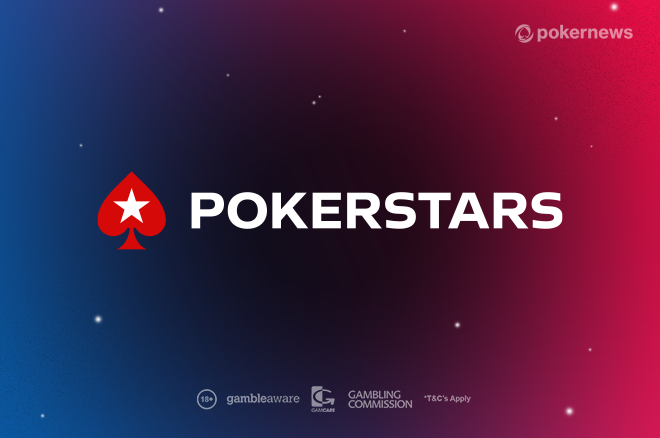While poker dealers are there to push pots, police players, and ultimately keep the action square, the responsibility ultimately falls on each individual player to protect their own hand, and that includes knowing how to read the board.
Nobody learned this lesson harder than Germany’s Pierre Kauert, who was at the final table of the WSOP Circuit main event at King’s Casino in Rozvadov, Czech Republic and playing for a top prize of €182,150.
There were five players remaining in the €1,700 buy-in tournament, and Kauert found himself all in holding J 10
against the dominating K
J
of a player named Lupo.
The board ran out A Q
6
J
6
, and both players made jacks and sixes with an ace kicker to seemingly split the pot. Except the dealer didn’t see the chop, and mistakenly believed that Kauert was outkicked.
The rest of the table didn’t notice the mistake either, and Kauert took the “loss” in stride, wishing luck to his fellow competitors before exiting. Incredibly, not even the commentators caught the mistake, despite the graphics on the live stream.
Watch the hand below, taken from the King’s Casino Twitch stream.
Had someone spoken up before the next hand was dealt, the situation would have been resolved and Kauert would have been given half the pot. But since play moved on before anybody realized what had happened, his elimination had to stand.
“It falls under player and dealer responsibility, so nothing can be done,” said Tournament Director’s Association Co-Founder and WPT Executive Tour Director Matt Savage on Twitter. “The only reason it was discovered was because it [was] on stream. Tough one to see for [the] player, but it’s too late.”
The rule Savage is referring to is TDA rule no. 2, which states in part that “players should… speak up if they see a mistake.” Additionally, rule no. 12 says that “any player, in the hand or not, should speak up if he or she thinks a mistake is made in reading hands or calculating and awarding the pot.”
While rule no. 13 points out that “dealers cannot kill a properly tabled hand that was obviously the winner,” rule no. 22 clearly states that “the reading of a tabled hand may be disputed until the next hand begins.”
Since nobody spoke up in time, Kauert had to settle for fifth place and €58,350 (about $63,000).
King’s Casino Poker Director Federico Brunato issued a statement, saying that he wanted to raise awareness about a situation that happens more often than people may realize.
“I would like to refer to one of the most important rules of poker – always read your hand,” wrote Brunato. “At the end of the day we are all humans and we all can make mistakes, [The dealer] is no exception. Even though she has dealt thousands of successful hands in her life, this hand unfortunately she misread. Nonetheless alongside with [the dealer], Mr. Pierre Kauert and all other competitors at the table misread the hand as well which of course is very unfortunate. The hand was supposed to be a split and we can now only guess how it would turn out in the main event path of Pierre Kauert, perhaps he would now be crowned a champion with a golden ring, perhaps he would be eliminated in the next hand. I would like to refer to WSOP rule number 76 which states, ‘the right to dispute a hand ends when a new hand begins.’ This applies not only to the WSOP, but also to nearly all regular poker games that are played.”
Savage concurred, saying “People get locked in on the kicker, and I’ve seen things like this missed often by the player involved.”
While this was certainly one of the most high-profile events for an error to have occured, it also nearly happened in the WSOP main event.
As poker author Jim McManus reported in his iconic Positively Fifth Street, which detailed the 2000 WSOP main event, a nearly identical situation occured between Hasan Habib and Anastassi Lazarou with 14 players left.
Habib held A-9 to Lazarou’s A-6, and the board fell K-5-5-8-J. While the pot should have been split, Lazarou was instead sent to the rail.
As McManus recalled, “A commotion erupts from along the rail and Lazarou explodes through the crush and arrives, breathing hard, at the table. ‘The pot was split,’ he yells. ‘Give me my money back!’”
McManus, who was sitting at the table, didn’t see the chop. Neither did the other players, or the dealer, or even the tournament director.
“Only Phil Hellmuth, sitting and chatting with Andy Glazer two rows behind the action, had caught it,” McManus wrote. “As Hellmuth later explained, he ‘saw the split coming’ and felt he had no choice but to mention it to Lazarou.”
Since Lazarou was able to dispute the hand before the next was dealt, he was allowed back in the tournament. He went on to outlast three more players and make another payjump, busting in 11th place.
